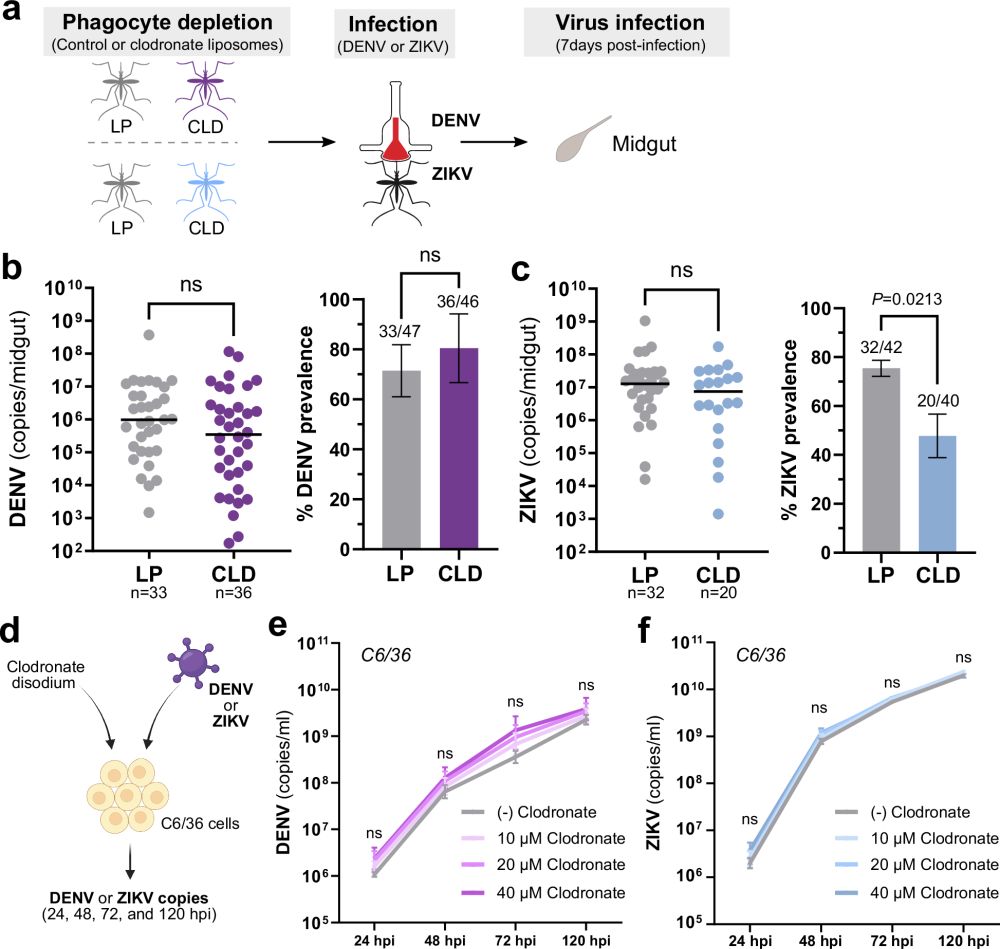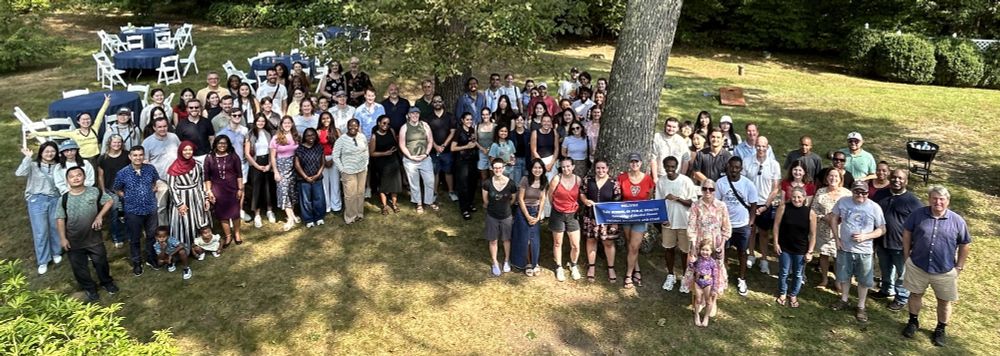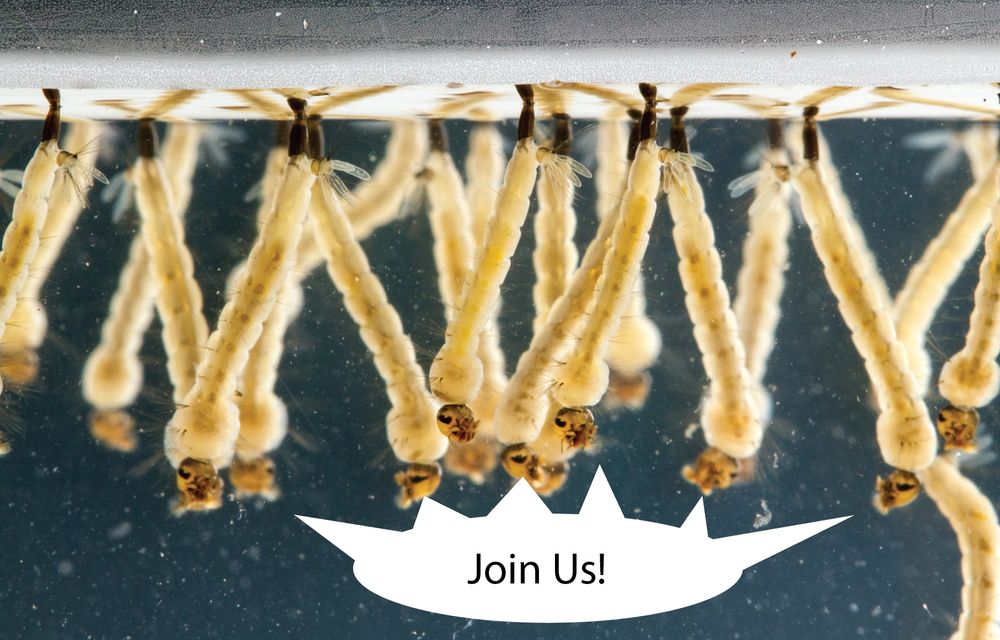Chantal Vogels
@chantalvogels.bsky.social
1.9K followers
340 following
14 posts
Assistant Professor at Yale School of Public Health | Medical Entomology 🦟 | Arbovirology 🦠 | Genomics 🧬 | 🇳🇱 |
www.vogelslab.com
Posts
Media
Videos
Starter Packs
Reposted by Chantal Vogels
Reposted by Chantal Vogels
Jason Rasgon
@vectorgen.bsky.social
· Aug 19

Expression of endogenous Anopheles gambiae microRNAs using an Anopheles gambiae densovirus (AgDNV) intronic expression system - Parasites & Vectors
Background Anopheles gambiae densovirus (AgDNV) is a highly species-specific parvovirus that reaches high titers in adult Anopheles gambiae mosquitoes with few transcriptomic effects and minimal signi...
parasitesandvectors.biomedcentral.com
Reposted by Chantal Vogels
Reposted by Chantal Vogels
Perran Ross
@perran.bsky.social
· Jul 30

Implications of successive blood feeding on Wolbachia-mediated dengue virus inhibition in Aedes aegypti mosquitoes
Nature Communications - Dengue virus transmission by Ae. aegypti mosquitoes poses a significant public health threat, necessitating innovative control strategies. Here, the authors demonstrate...
rdcu.be
Chantal Vogels
@chantalvogels.bsky.social
· Jul 30
Becky Johnson
@entomososwin.bsky.social
· Jul 30

Implications of successive blood feeding on Wolbachia-mediated dengue virus inhibition in Aedes aegypti mosquitoes - Nature Communications
Dengue virus transmission by Ae. aegypti mosquitoes poses a significant public health threat, necessitating innovative control strategies. Here, the authors demonstrate that, while successive blood fe...
www.nature.com
Reposted by Chantal Vogels
James Hay
@jameshay.bsky.social
· Jul 7
Reposted by Chantal Vogels
brackneylab
@brackneylab.bsky.social
· Jul 1

Mosquito immune cells enhance dengue and Zika virus infection in Aedes aegypti
Nature Communications - Infection of mosquito immune cells by dengue and Zika virus enhances the spread of virus infection to mosquito tissues, such as the salivary glands, to promote virus...
rdcu.be
Reposted by Chantal Vogels
Reposted by Chantal Vogels
Grant Hughes
@mosquitomicrobe.bsky.social
· Jun 18

Post Doctoral Research Associate in Wolbachia Biology | Liverpool School of Tropical Medicine
Ready to make a difference in vector biology research? We are looking for a dedicated and enthusiastic researcher to join an exciting BBSRC-funded project exploring the fascinating interactions betwee...
app.vacancy-filler.co.uk
Reposted by Chantal Vogels
Reposted by Chantal Vogels
Reposted by Chantal Vogels
Nick Loman
@pathogenomenick.bsky.social
· May 22

Ambitious project to develop low-cost genome sequencing for pathogens known and unknown - University of Birmingham
Project will build on research that helped diagnostic labs to adopt sequencing capacity for COVID-19 and permit characterisation of future infectious threats
www.birmingham.ac.uk
Reposted by Chantal Vogels
Reposted by Chantal Vogels


















